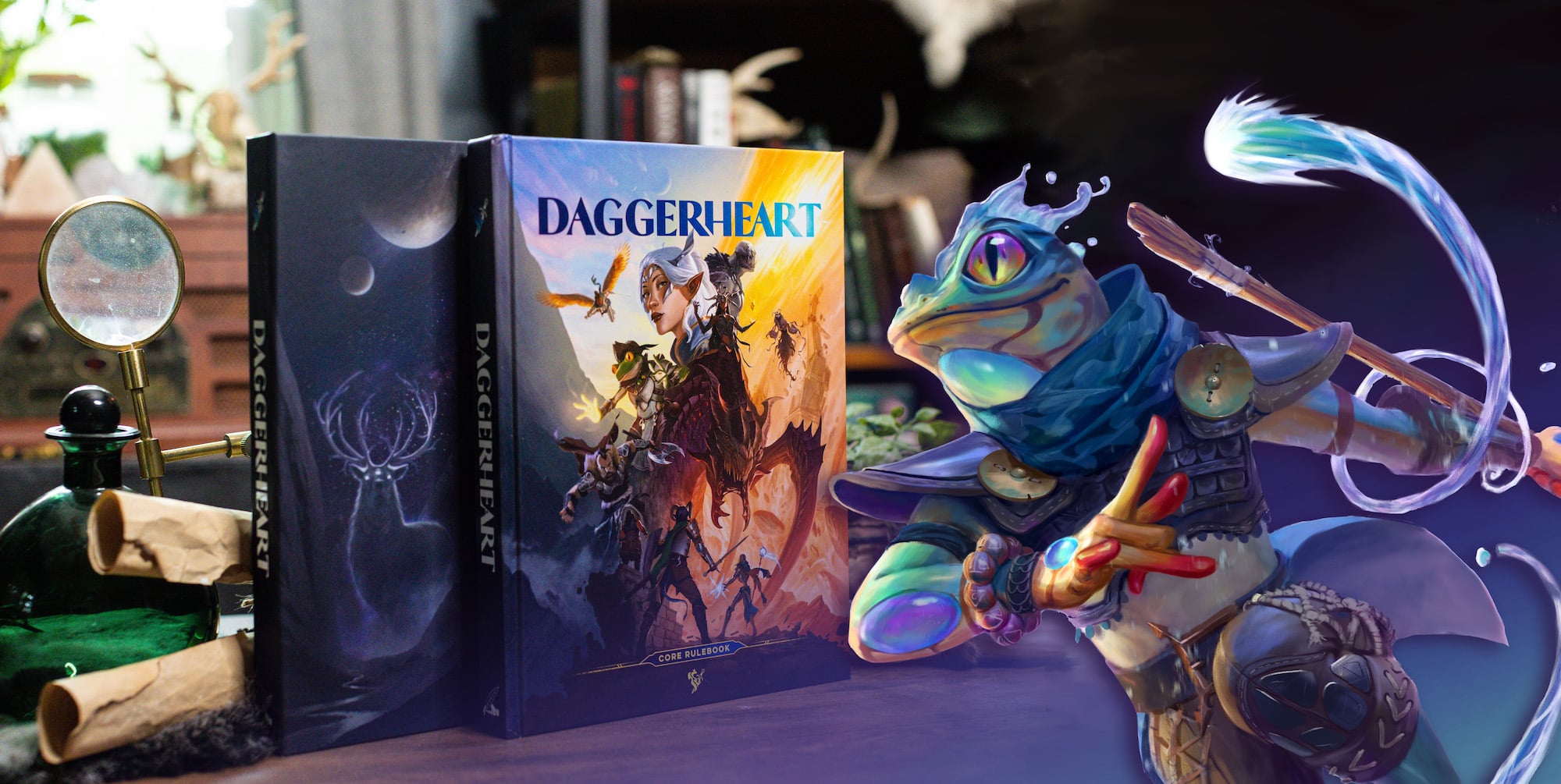On March 12th, Critical Role's Darrington Press will be launching the open playtest for Daggerheart, their new fantasy TTRPG/
Using cards and two d12s, the system plays on 'the dualities of hope and fear'. The game is slated for a 2025 release.
Almost a year ago, we announced that we’ve been working hard behind-the-scenes on Daggerheart, our contribution to the world of high-fantasy tabletop roleplaying games.
Daggerheart is a game of brave heroics and vibrant worlds that are built together with your gaming group. Create a shared story with your adventuring party, and shape your world through rich, long-term campaign play.
When it’s time for the game mechanics to control fate, players roll one HOPE die and one FEAR die (both 12-sided dice), which will ultimately impact the outcome for your characters. This duality between the forces of hope and fear on every hero drives the unique character-focused narratives in Daggerheart.
In addition to dice, Daggerheart’s card system makes it easy to get started and satisfying to grow your abilities by bringing your characters’ background and capabilities to your fingertips. Ancestry and Community cards describe where you come from and how your experience shapes your customs and values. Meanwhile, your Subclass and Domain cards grant your character plenty of tantalizing abilities to choose from as your character evolves.
And now, dear reader, we’re excited to let you know that our Daggerheart Open Beta Playtest will launch globally on our 9th anniversary, Tuesday, March 12th!
We want anyone and everyone (over the age of 18, please) to help us make Daggerheart as wonderful as possible, which means…helping us break the game. Seriously! The game is not finished or polished yet, which is why it’s critical (ha!) to gather all of your feedback ahead of Daggerheart’s public release in 2025.
Daggerheart is a game of brave heroics and vibrant worlds that are built together with your gaming group. Create a shared story with your adventuring party, and shape your world through rich, long-term campaign play.
When it’s time for the game mechanics to control fate, players roll one HOPE die and one FEAR die (both 12-sided dice), which will ultimately impact the outcome for your characters. This duality between the forces of hope and fear on every hero drives the unique character-focused narratives in Daggerheart.
In addition to dice, Daggerheart’s card system makes it easy to get started and satisfying to grow your abilities by bringing your characters’ background and capabilities to your fingertips. Ancestry and Community cards describe where you come from and how your experience shapes your customs and values. Meanwhile, your Subclass and Domain cards grant your character plenty of tantalizing abilities to choose from as your character evolves.
And now, dear reader, we’re excited to let you know that our Daggerheart Open Beta Playtest will launch globally on our 9th anniversary, Tuesday, March 12th!
We want anyone and everyone (over the age of 18, please) to help us make Daggerheart as wonderful as possible, which means…helping us break the game. Seriously! The game is not finished or polished yet, which is why it’s critical (ha!) to gather all of your feedback ahead of Daggerheart’s public release in 2025.





